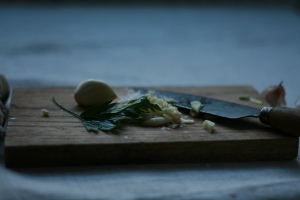
The Ottomans, being meritocrats who rewarded talent over accidents of birth, were naturally keen on self-improvement. If you entered palace service, you were educated formally at first, and then expected to carry on improving your skills and learning new ones. By the end, if you were good, you were in a position to handle the demands of high office. You might even make it to Grand Vizier.
I shall never make vizier, but I approve of the Ottoman attitude to self-improvement. We all try to get better at what we do, and perhaps we should try to get better at things we don’t do, too, or didn’t until now. This year I set aside my books and learned how to restore an ancient house, how to write a screenplay using Final Draft and how to take photographs, principally of food. As many of you will know from your own experience, the effort proved enjoyable, and worthwhile.
I needed beautiful pictures to illustrate Yashim’s Istanbul Cook Book, for which many of you have already kindly tested recipes. I do have beautiful pictures of Ottoman Istanbul, with old maps, illustrations and engravings, to accompany the text and help evoke the atmosphere of Yashim’s Istanbul. I have lovely photographs of the modern city, its markets, ferries, domes and shops, to forge the link between Yashim’s time and our own. That leaves only the dishes themselves to be portrayed, hinting at their excellence.

Advised by a website called thewoksoflife I bought a new sort of lens, and took estimable advice and instruction available on the internet. Bearded professionals revealed some of the secrets of their craft on YouTube, camera buffs on chatrooms discussed the virtues of RAW and jpeg, and bloggers, in Manhattan lofts as in Cornish villages, showed off their cooking and photographic skills. Absorbing all this, I realised it came down to: the right lens, and the right sort of light. The right lens makes the background blur, which we photographers call bokeh, and the right light is daylight.

After that, all you need is delicious food, charming surfaces, acceptable crockery, table cloths, clean spoons, salt cellars and small bowls, a scattering of fresh parsley from your garden and a tripod, for which sometimes a box will serve. You also need a reflector, to chase away shadows. I was told I needed tweezers, too, for arranging salad leaves, but I skipped that. I relied on opposable thumbs.

Above all you need to get your food ready while it is still light, and you need to eat something yourself before you set it all out, otherwise you get hasty. And greedy.

Patience is absolute. Remember Mustafa the Soup Master in The Janissary Tree?
“As for himself, he thought, patience was his second skin. How could he have lived his life, and not acquired patience in positively redemptive quantities?”
